Understanding Counselling: The Role of the Learning Theory Model
VerifiedAdded on 2022/08/24
|6
|1224
|28
Essay
AI Summary
This essay provides a detailed overview of the learning theory model and its application in counselling. It begins by defining the learning theory model as a framework for understanding how students absorb, process, and retain knowledge, emphasizing the roles of cognitive, environmental, and emotional influences. The essay traces the history of the theory to John B. Watson and behaviorism, highlighting key concepts such as classical conditioning, operant conditioning, and social learning theory. It discusses assessment methods for evaluating student learning, including questionnaires, early learning scales, and formative/summative assessments. Furthermore, the essay addresses the diagnosis of learning disabilities like APD, Dyscalculia, Dyslexia, and ADHD, and the use of tools like informal interviews and brain imaging techniques. Finally, it explores the counselling process, emphasizing the importance of insightful learning and applying the learning theory model to address client issues such as lack of information, interpersonal conflict, and cultural self-conflict, recommending methods like motivational interviewing and school-based counselling. The essay concludes by suggesting that engaging clients in constructive problem-solving activities enhances their ability to deal with problems effectively.
1 out of 6
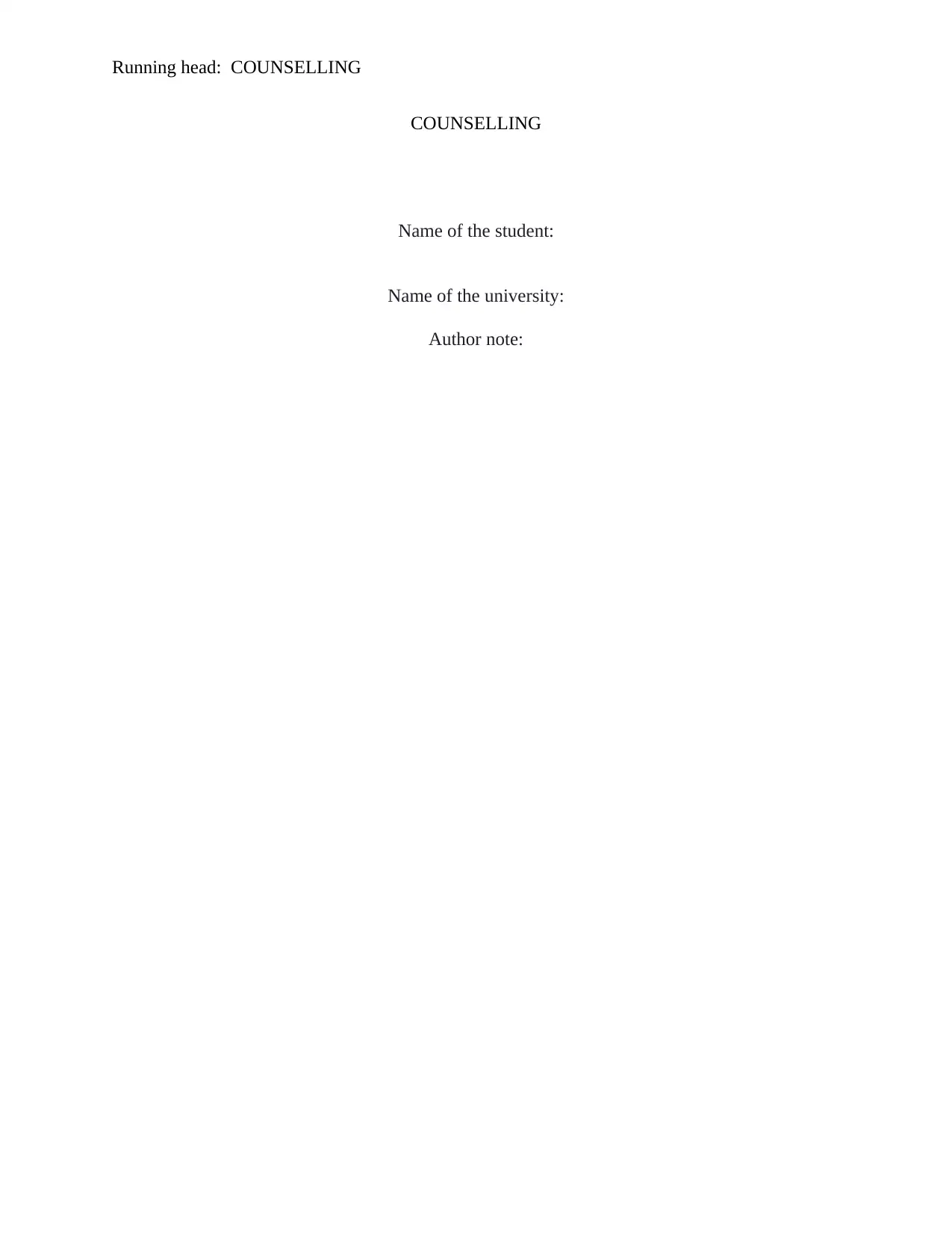
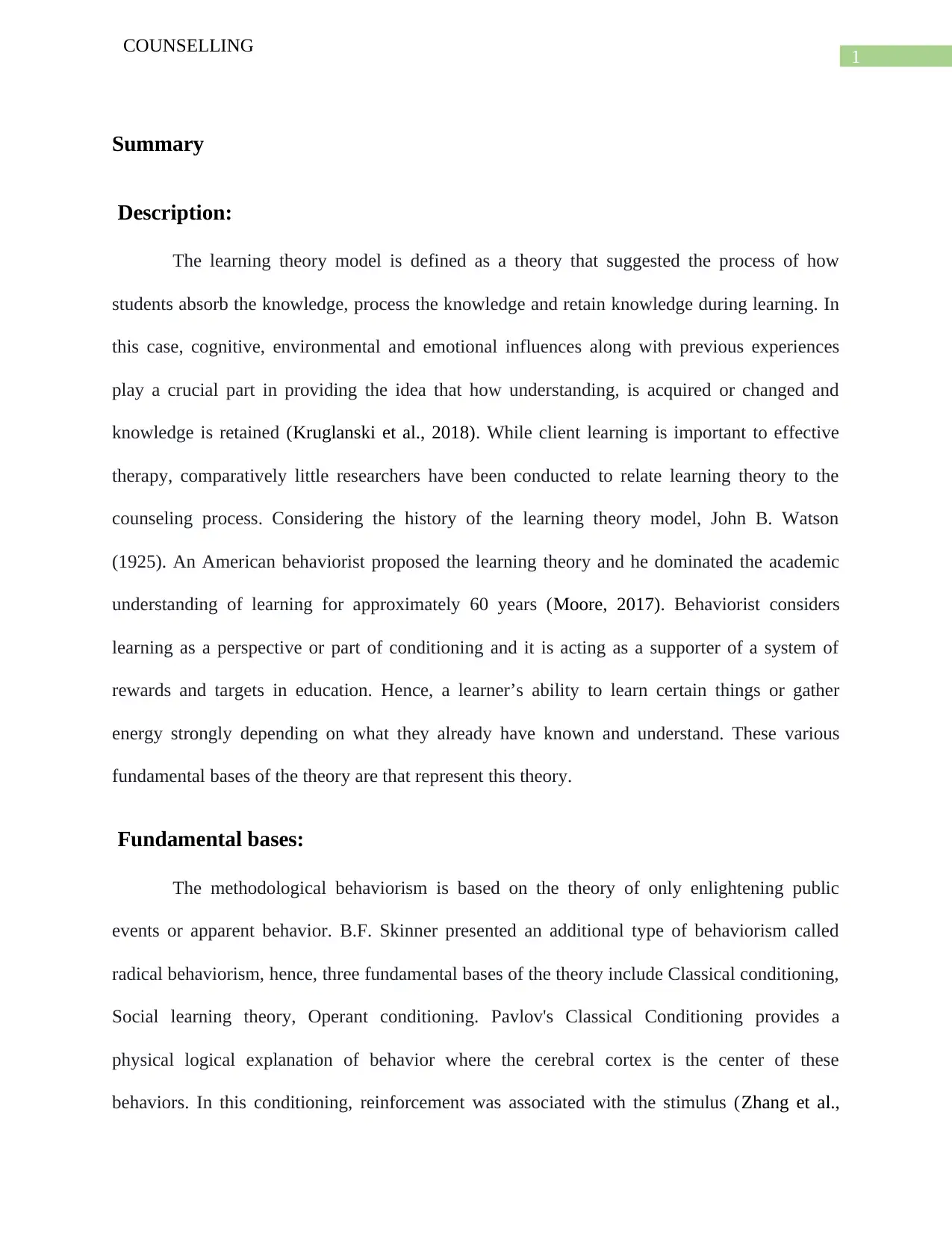
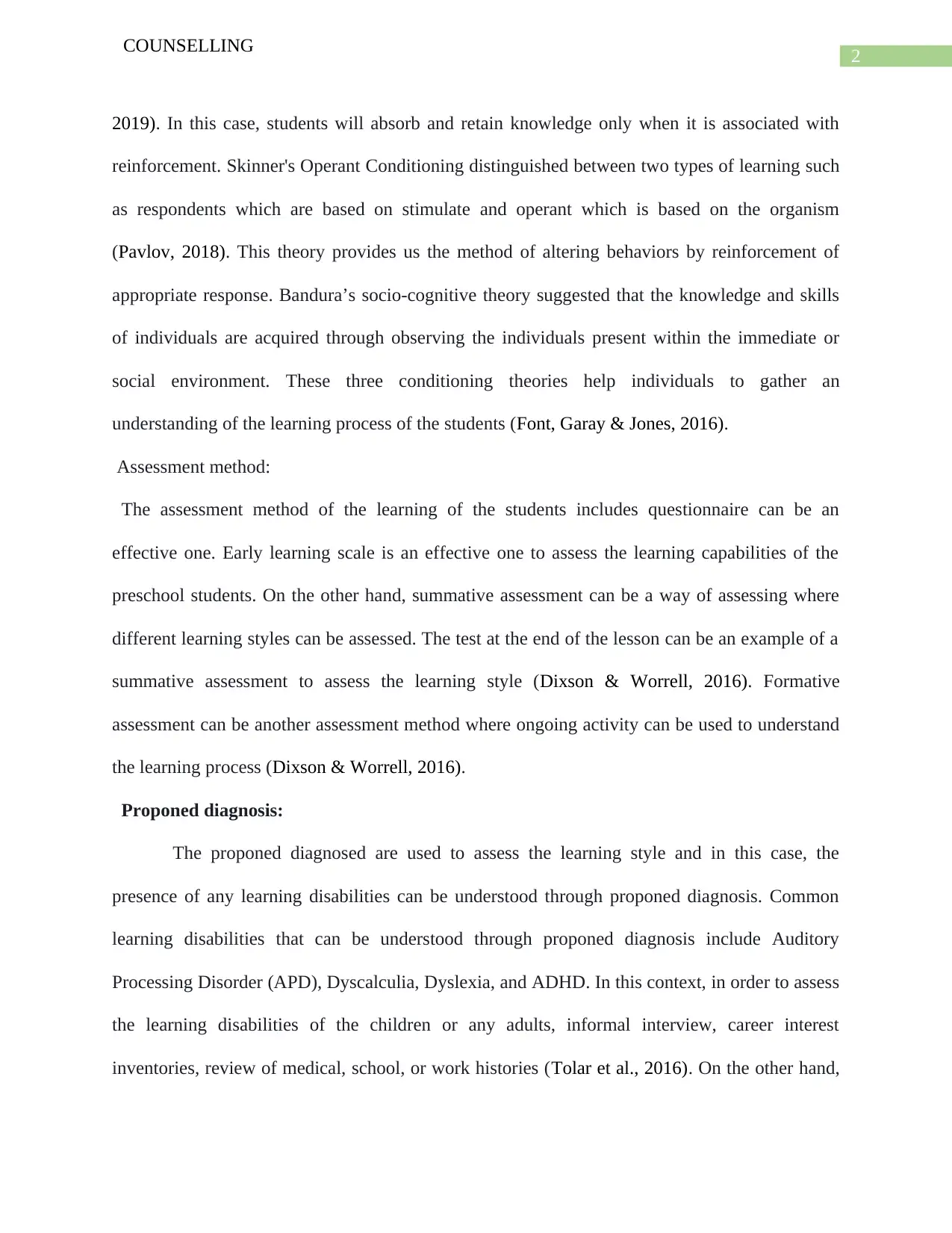

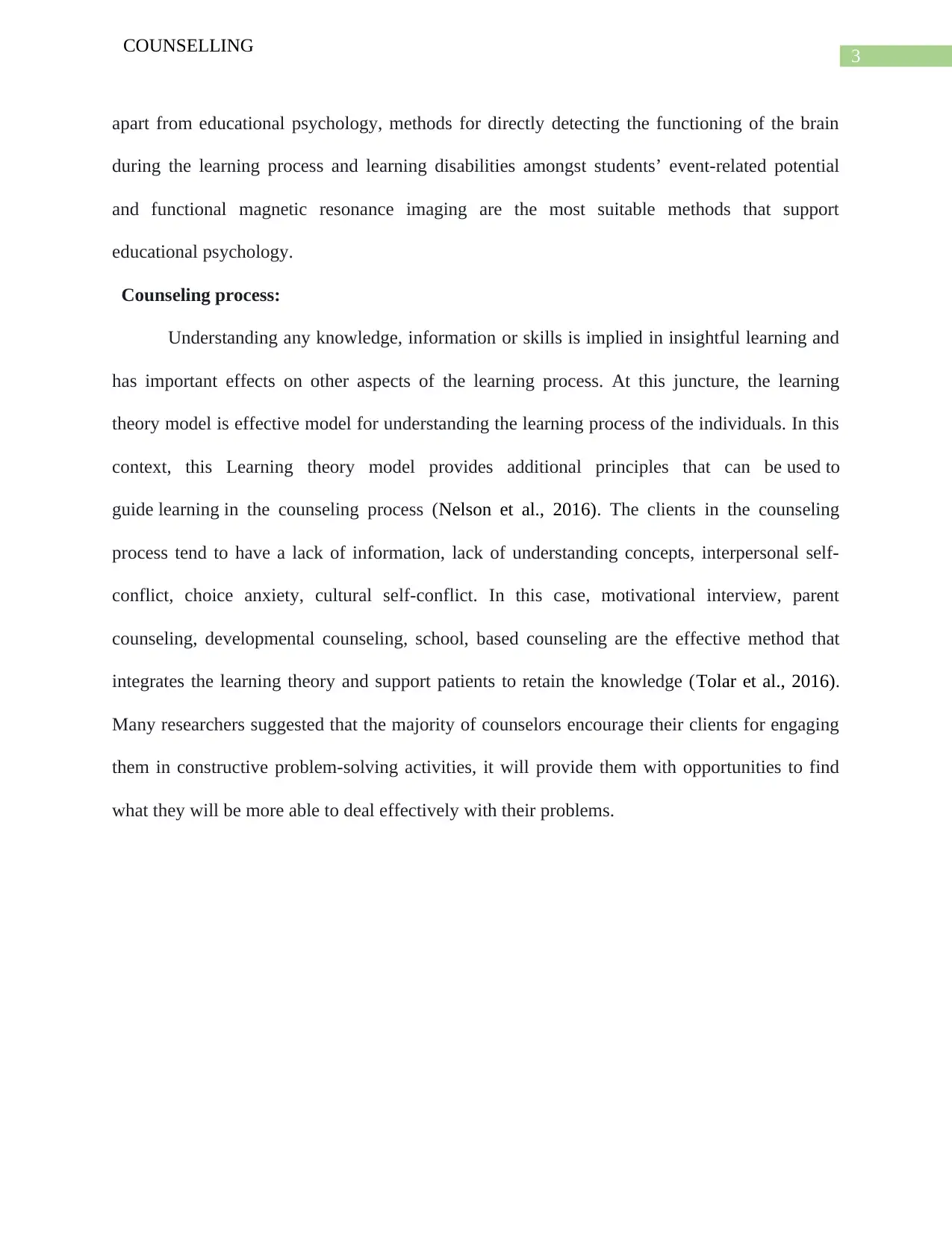
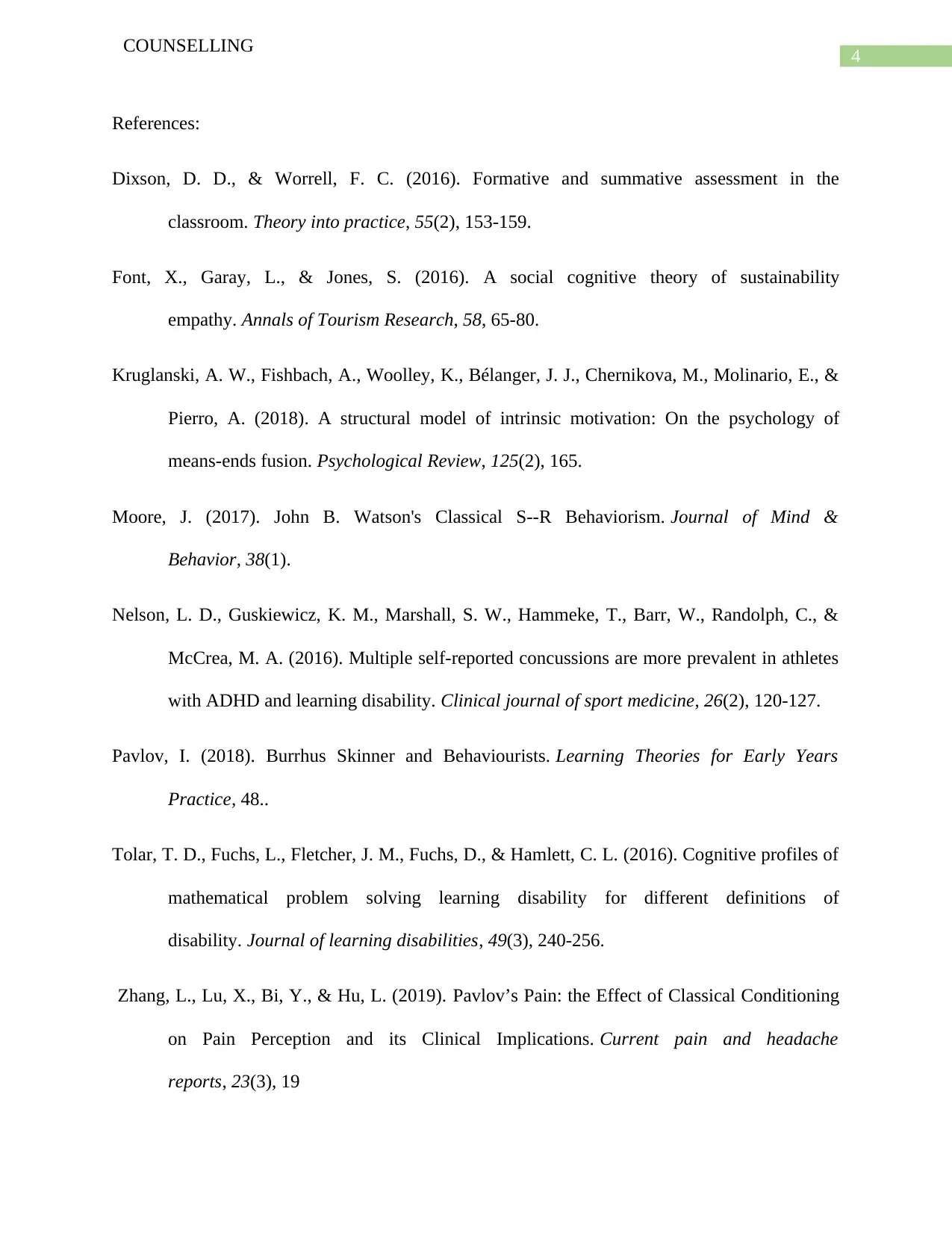






![[object Object]](/_next/static/media/star-bottom.7253800d.svg)